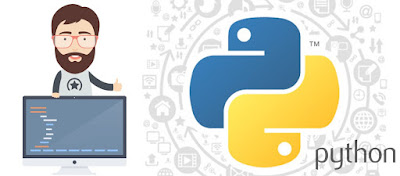What is Business Analytics?
What is Analytics?
Analytics
is the systematic computational analysis of data. In the simplest sense,
Analytics is Applied Business Statistics. Statistics is a collection of methods for planning experiments,
obtaining data, and then organizing, summarizing, presenting, analyzing,
interpreting, and drawing conclusions to understand underlying macro trends.
Applied statisticians apply their
knowledge of statistical methods to a variety of subject areas, such as
biology, economics, engineering, medicine, public health, psychology,
marketing, and education.
A Brief
History of Analytics:
Availability and accuracy of data is the key to decision making. As
such, Analytics in some form or the other has been part of business decision
making.
There are numerous drivers of production and the supply chain, and there
are several processes under each driver. These processes are associated with
high overheads and offer opportunities for cost reduction.
Cost reduction requires a complete knowledge and mapping of all costs,
cycle times, purchases, inventories, suppliers, customers, logistics, and other
service providers throughout the supply chain. Just-in-Time and Six Sigma are
two very popular statistics-driven management areas which have been around since
the early 1900s.From then onwards, there has been a steady integration of
Statistics into business decision making.
By 2005 most banks, insurance companies, drug and pharma companies,
casinos, telecom companies and internet companies had started using data to
make critical decisions. These days, data scientist has become a ‘cool’ word to
refer to Analysts.
Critical
Competencies for an Analyst:
An Analyst needs to have three critical skills:
1. Understanding
the business – to define the problem in statistical terms and, after the
analysis, to summarize and suggest solutions which the business can implement
2. Understanding
statistical techniques – to decide which technique can be used to solve which
problem
3. Understanding
of Analytics software like SAS, R , SPSS , Excel Analysis Toolpak etc. – To be
able to implement the statistical techniques on the data
Future and Careers in Analytics
With
the explosion in quantum of data (mobile, internet, application software,
sensors) and reduction in costs for storing data, there is a huge demand for
Analysts – who are seen as people who can make “sense” of data.
§ Data
scientists are high in demand — according to
one estimate, job postings increased by 15,000%
between 2011 and 2012.
§ Between
2010 and 2020, the data scientist career path is projected to increase by 18.7
percent, beat only by video game designers.
§ There’s
a global talent shortage, which means that data scientists are in high demand
but short supply. As a result, average salaries are trending higher and higher
— the average data science salary in the U.S., according to Glassdoor, is $117,500. Not
surprisingly, those with PhDs and experience can earn salaries as high as $650,000, based on
a Reuters peHUB article.
According to a report
by McKinsey Global Institute, "there will be a shortage of talent
necessary for organizations to take advantage of big data. By 2018, the United
States alone could face a shortage of 140,000 to 190,000 people with deep
analytical skills as well as 1.5 million managers and analysts with the
know-how to use the analysis of big data to make effective decisions."
Industry-Endorsed Business Analytics
Course at Imarticus
1. Imarticus offers an extensive certification
course on Business Analytics for freshers and working professionals. The
curriculum for the Business Analytics Program (BAP) at Imarticus is prepared in
conjunction with one of the largest analytics KPOs in India. In 200 hours of
training, we cover the three critical skills required by an Analyst. To create
a well-rounded working professional, we top that up with 20 hours of soft
skills training. Business understanding – Is provided by industry experts who conduct the
classes, supplemented by periodic guest
lectures from industry stalwarts.
2. Understanding
statistical techniques – Descriptive and Inferential statistics, Modelling
3. Understanding
of Analytics software like SAS and R
4.
Personal development - Soft skills training including interview
preparation, resume building, communication skills etc
To know more, please refer to our web site(http://imarticus.org/programs/business-analytics-professional/ ).
When I search for Business Analytics on Naukri on 16th June, I
find 43318 jobs listed .
Bangalore – 9645
Mumbai - 7622
Chennai – 4022
The industries which are listed as major employers are :-
IT Software / services :- 12667
Banking and Financial Services :- 5060
BPO / ITES :- 1756
Salary wise the breakup of jobs
is as follows:-
Freshers with 0 experience , Salary <=3 lakhs per annum – 5000
Freshers with 0 experience , Salary 3- 6 lakhs per annum – 5330
Experience pf 1-4 years, Salary 3-10 lakhs per annum – 10659
This clearly shows that there is a huge demand for Analytics professionals
in the market and that Analytics is a lucrative career option .imarticus.org



Makes sense mate and i am surely liking it,Basically what i feel is the ones who do this thing its important for them to bring business agility which works big time so yeah i must say learning from them is a way of understanding it all and it surely goes ahead.
ReplyDelete